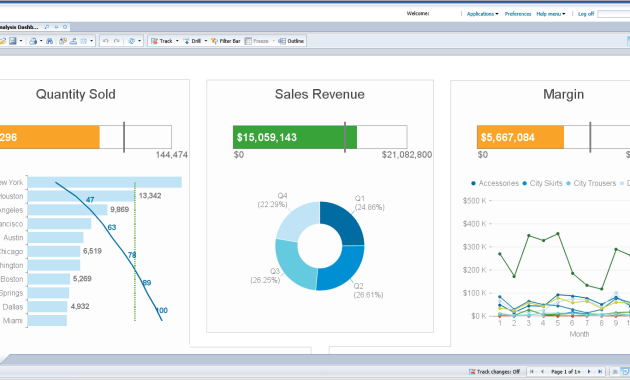
Save Time with Business Intelligence Software Tools: A Guide for Professionals
In today’s fast-paced business environment, time is a precious commodity. Companies are constantly seeking ways to optimize their operations and gain a competitive edge. One powerful solution that has emerged as a game-changer is business intelligence (BI) software. This article explores how business intelligence software tools can significantly save time, improve decision-making, and drive overall business efficiency. We’ll delve into the core functionalities, benefits, and key considerations for implementing these tools effectively.
Understanding Business Intelligence Software
Business intelligence software encompasses a range of applications and platforms designed to collect, analyze, and visualize data. The primary goal is to transform raw data into actionable insights. These insights empower businesses to make informed decisions, identify trends, and optimize performance. This is how these tools ultimately help you save time.
At its core, business intelligence software facilitates data integration from various sources. This includes databases, spreadsheets, cloud applications, and more. The software then processes this data, often through automated processes, to identify patterns, correlations, and anomalies. The results are presented in user-friendly formats such as dashboards, reports, and interactive visualizations. This allows users to quickly understand complex information.
Key Features of Business Intelligence Software Tools
To effectively save time and improve decision-making, business intelligence software tools typically offer several key features:
- Data Integration: The ability to connect to and pull data from a variety of sources.
- Data Warehousing: Securely storing and organizing large volumes of data.
- Data Analysis: Employing statistical and analytical techniques to uncover insights.
- Reporting and Dashboards: Creating customized reports and interactive dashboards.
- Data Visualization: Presenting data in a visually appealing and easy-to-understand format.
- Data Mining: Discovering patterns and trends within large datasets.
- Predictive Analytics: Forecasting future outcomes based on historical data.
How Business Intelligence Software Saves Time
One of the most significant benefits of business intelligence software is its ability to save time. This is achieved through several mechanisms:
- Automation of Reporting: Manual report generation is a time-consuming process. Business intelligence software automates this, providing up-to-date reports on demand.
- Faster Data Analysis: Instead of manually sifting through spreadsheets, BI tools quickly analyze data and highlight key insights.
- Real-Time Data Access: Access to real-time data enables faster decision-making. This prevents delays caused by waiting for information.
- Improved Collaboration: Dashboards and reports can be easily shared across teams. This facilitates collaboration and avoids time wasted on data requests.
- Proactive Issue Detection: By identifying trends and anomalies early, BI software helps prevent problems from escalating. This saves time and resources.
Benefits Beyond Time Savings
While saving time is a crucial benefit, business intelligence software offers a range of other advantages:
- Improved Decision-Making: Data-driven insights lead to more informed and strategic decisions.
- Increased Efficiency: Identifying and optimizing inefficient processes leads to improved overall efficiency.
- Enhanced Profitability: Better decisions and optimized processes often translate to increased revenue and profitability.
- Competitive Advantage: Businesses with superior data analysis capabilities can make faster and more informed decisions than competitors.
- Better Customer Understanding: Analyzing customer data can lead to better customer service and targeted marketing campaigns.
Choosing the Right Business Intelligence Software Tools
Selecting the right business intelligence software tools is crucial for realizing the benefits. Consider the following factors:
- Business Needs: Define your specific goals and data analysis requirements.
- Data Sources: Identify the data sources you need to integrate.
- Scalability: Choose a solution that can grow with your business.
- Ease of Use: Select a user-friendly platform that requires minimal training.
- Integration Capabilities: Ensure the software integrates with your existing systems.
- Cost: Evaluate the pricing models and compare costs.
- Security: Prioritize data security and compliance.
- Vendor Reputation: Research the vendor’s reputation and customer reviews.
Implementing Business Intelligence Software: Best Practices
Successful implementation of business intelligence software requires a strategic approach:
- Define Clear Objectives: Establish specific goals for the implementation.
- Data Preparation: Ensure data quality and consistency.
- User Training: Provide adequate training for all users.
- Pilot Program: Start with a pilot project to test the software.
- Iterative Approach: Implement the software in phases.
- Ongoing Monitoring: Continuously monitor performance and make adjustments as needed.
- Seek Expert Advice: Consider consulting with a business intelligence expert.
Real-World Examples of Time Savings
Several businesses have successfully utilized business intelligence software to save time and improve their operations. Here are some examples:
- Retail: Retailers use BI software to analyze sales data and inventory levels. This helps them optimize stock levels. They can also identify trends and avoid stockouts. This ultimately saves time by streamlining operations.
- Manufacturing: Manufacturers use BI tools to monitor production processes. This helps them identify bottlenecks and reduce downtime. This results in increased efficiency and time savings.
- Healthcare: Healthcare providers use BI software to track patient outcomes and improve operational efficiency. They can also identify areas for improvement. This helps them save time and improve patient care.
- Finance: Financial institutions use BI tools to analyze financial performance and detect fraud. They can also automate reporting and improve regulatory compliance. This leads to significant time savings.
The Future of Business Intelligence
The field of business intelligence is constantly evolving. We can expect to see further advancements in:
- Artificial Intelligence (AI): AI-powered BI tools will provide more advanced analytics and insights.
- Machine Learning (ML): ML algorithms will automate data analysis and predictive modeling.
- Cloud-Based Solutions: Cloud-based BI platforms will become more prevalent.
- Data Democratization: Making data and insights more accessible to all users.
These advancements will continue to enhance the ability of business intelligence software to help businesses save time and make better decisions.
Conclusion: Embrace Business Intelligence to Save Time and Thrive
Business intelligence software tools offer a powerful solution for businesses seeking to save time, improve decision-making, and gain a competitive edge. By understanding the key features, benefits, and implementation best practices, businesses can leverage these tools to transform their data into actionable insights. As the business landscape continues to evolve, embracing business intelligence will be essential for success. The ability to quickly analyze data and make informed decisions will be a key differentiator. This will allow businesses to thrive in a rapidly changing world. Investing in business intelligence is an investment in a more efficient and successful future. It is an investment that will ultimately allow your company to save time and resources.
[See also: Related Article Titles]

